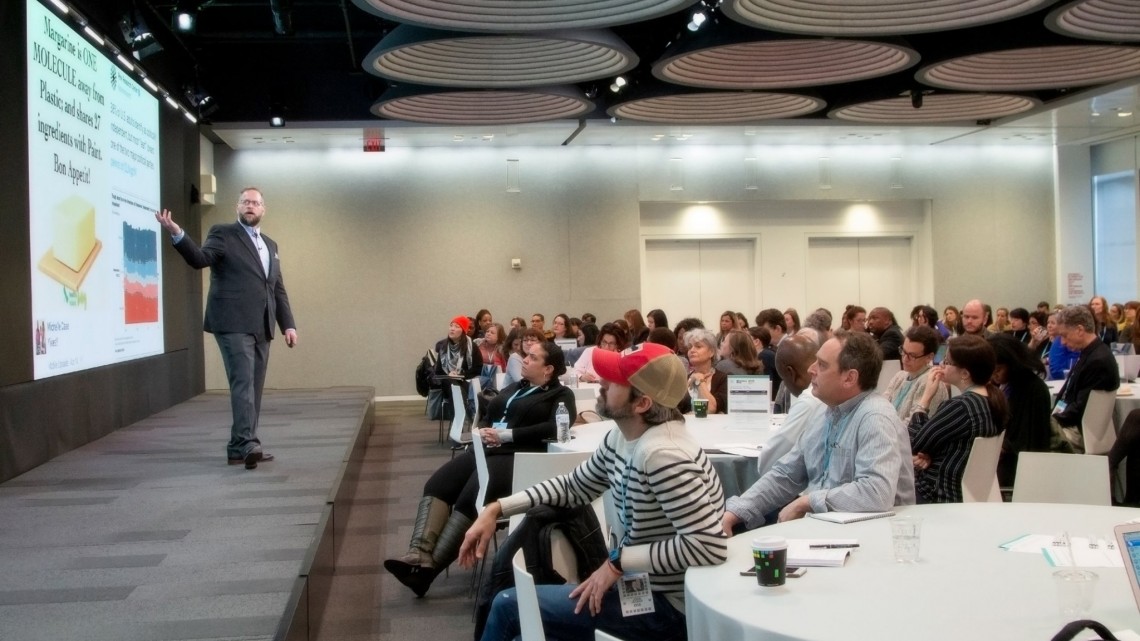

Conspiracy theories need an outside actor to place blame, an actor who bolsters the “us vs them” aspects, and wealthy, influential figures like George Soros and Bill Gates fit the stereotype of a powerful, shadowy figure manipulating events.
EURACTIV.ro spoke with experts from the News Literacy Project, a nonprofit that seeks to develop smart news consuming habits and stop the spread of misinformation, about the ”enemy” at the center of almost all conspiracy theories and how Bill Gates became the actor to blame for COVID-19 spread.
The answers were provided by John Silva, Senior Director of Education Training – the News Literacy Project, and Charles Salter, President and Chief Operating Officer – the News Literacy Project.
EURACTIV.ro: Why do you think it’s easier for many people to believe that Bill Gates can inject chips through vaccination than trust medical personalities who speak about the benefits of vaccines?
News Literacy Project: One of the reasons why people believe conspiracy theories is that they provide simple answers to complex problems and fears. It’s important to first keep in mind that opposition to vaccines is a spectrum. Many people are hesitant about vaccines but generally trust them. The challenge is that once someone begins down a path of accepting anti-vaccine falsehoods, they become more susceptible to conspiratorial thinking. This leads to a breakdown of critical thinking and a prevalence of cognitive dissonance. Someone who is strongly anti-vaccine will believe almost anything that supports their views of the dangers of vaccines. This is called “motivated reasoning” along with confirmation bias.
In recent months, anti-vaccine conspiracy theorists have pushed beliefs that the COVID-19 pandemic was created in a lab as a way to force vaccinations on the public. As fears around the pandemic grew, other conspiracy theories relating to vaccines increased in popularity, spread primarily in closed Facebook groups. The belief about injecting microchips through vaccines was part of that along with the belief that Covid-19 was spread through 5G networks.
When people are afraid, conspiracy theories offer answers to calm those fears in ways that address the emotional response. Medical professionals often appeal to reason and logic. When it comes to conspiracy theories, reason and logic don’t work because people who believe in the conspiracy favor motivated reasoning over true critical thinking because they reject any evidence that does not support their beliefs.
EURACTIV.ro: Why some of the misinformation strategies are focused on personalities most people know almost nothing about – Soros, Gates – and not on people the public might be more familiar and maybe already invested with negative traits – let’s say, Putin or even Trump?
News Literacy Project: At the center of many conspiracy theories is an “enemy”. This person or organization is the powerful force that is driving the conspiracy. Mr. Soros is a popular target for conspiracy theories mainly because he is Jewish and very wealthy. In particular, far-right wing conspiracy theorists target him because of his financial and philanthropic support for democratic politicians and causes. Since he isn’t a visible public figure, he fits the stereotype of the mysterious, wealthy man pulling the strings behind the scenes.
Similarly, Bill Gates also fits this stereotype because of his wealth and where he puts his money. The less we know about a person, the easier it is for us to believe conspiracy theories involving them. In the US, there are many conspiracy theories that involved President Trump, as well as former President Obama. These though are usually part of larger conspiracy theories with people like Mr. Soros or shadowy, powerful organizations manipulating events behind the scenes.
EURACTIV.ro: Speaking of, at least in Europe, conspiracy theories replaced Soros with Bill Gates. Soros was already the world’s “public enemy”. Will Bill Gates become another public enemy or he is just a “regional product”?
News Literacy Project: Mr. Gates is certainly becoming a more popular figure in conspiracy theories, in particular relating to the confluence of anti-vaccine, 5G and Covid-19 pandemic related beliefs. In recent years, the Bill & Melinda Gates Foundation has significantly increased their support for vaccine programs around the world. As conspiracy theories try to tie vaccines and/or 5G technology to the pandemic, the Gates Foundation fits the stereotype of the powerful organization, not connected to any government influencing events. This is especially likely because of the global reach of social media and how many people are affected by the pandemic.
This interview was published with the agreement of Euractiv.ro. Full interview here
Photo: News Literacy Project (via Facebook.com)
Two intrepid journalists embarked on an investigation into the unjust conviction of a Czech man,…
Every year, a journalism class at a Vienna-based university unearths attention-grabbing stories. The idea of…
The decision sets a dangerous precedent, giving authorities the power to fine media as they…
With the foundation recognized as a major supporter of independent journalism, its decision is bad…
The closure of Tele Liban raises concerns about the future of the station and its…
The arrest of Mehdi and Majid Nikahd serves as a stark reminder of the challenges…